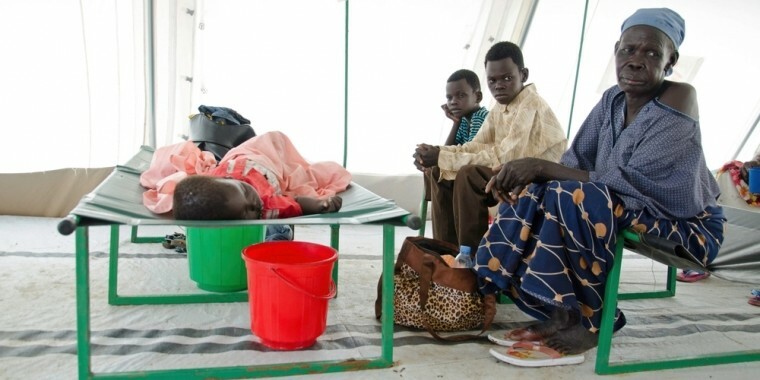The National Ministry of Health on Tuesday declared an outbreak of cholera in Malakal town of Upper Nile State.
Cholera is an infection caused by the ingestion of food or water contaminated with a bacterium. It has a short incubation period, from less than one day to five days. Symptoms include dehydration, vomiting, and watery diarrhoea.
Minister of Health Yolanda Awel Deng said in a statement that the ministry received an alert of a suspected cholera outbreak in Malakal, Upper Nile State, on the 25th February 2023 from the State Ministry of Health and upon receiving the notification, a multidisciplinary national rapid response team was immediately deployed to conduct preliminary epidemiological investigation, verification and support initial response.
“On 22″ February, Medicines’ San Frontiers Spain (MSF Spain) in Malakal, Upper Nile State, received an alert of increasing cases of acute watery diarrhoea and vomiting in children aged one year and below. Two samples were collected and tested positive for cholera on rapid diagnostic testing (RDT,)” reads part of the statement.
She said additional nine samples were collected and transported to the National Public Health Laboratory in Juba on 2 March 2023 for culture and polymerase chain reaction (PCR) testing, in which two out of the nine samples tested positive for Vibrio cholerae on PCR testing.
Awel disclosed that they had recorded 179 cumulative cholera cases and one death since February 22nd, reported from Malakal in Upper Nile State, adding that 59 percent of the cases are male, whereas females account for 41 percent of the cases with children under four years the most affected.
She said they have immediately activated the Public Health Emergency Operations Centre to response mode and all response pillars (coordination, surveillance, case management, Water, Sanitation and Hygiene (WASH)/ Infection Prevention and Control (IPC) Risk Communication and Community Engagement, (RCCE), safe and dignified burial, Points of Entry (PoE), and logistics) activated.
Awel pointed out that the ministry had deployed an additional multi-disciplinary rapid response team comprising of epidemiologist, laboratory, case management, infection prevention and control, water sanitation and hygiene (WASH) and risk communication and community engagement (RCCE) to conduct an in-depth investigation to determine the magnitude and risk factors associated with the outbreak as well as support in scaling up the response.









